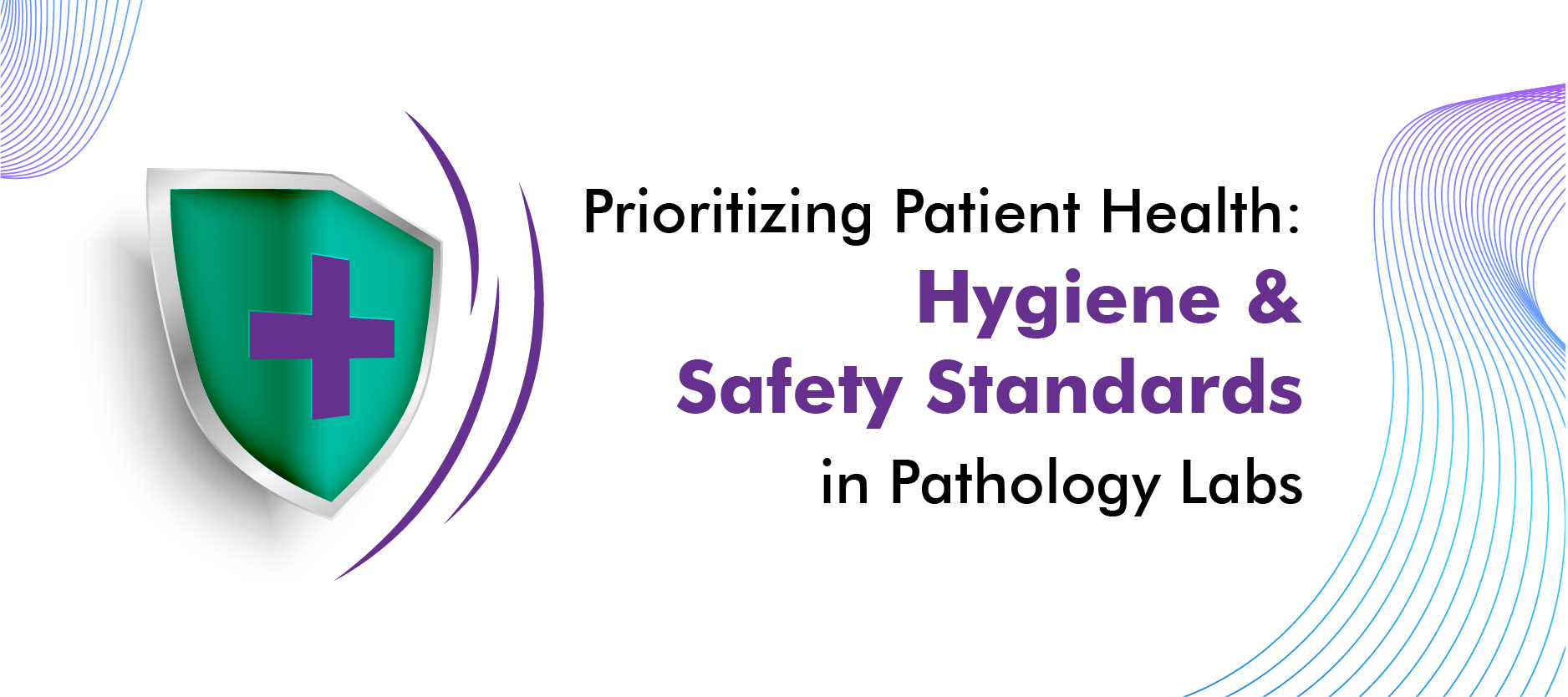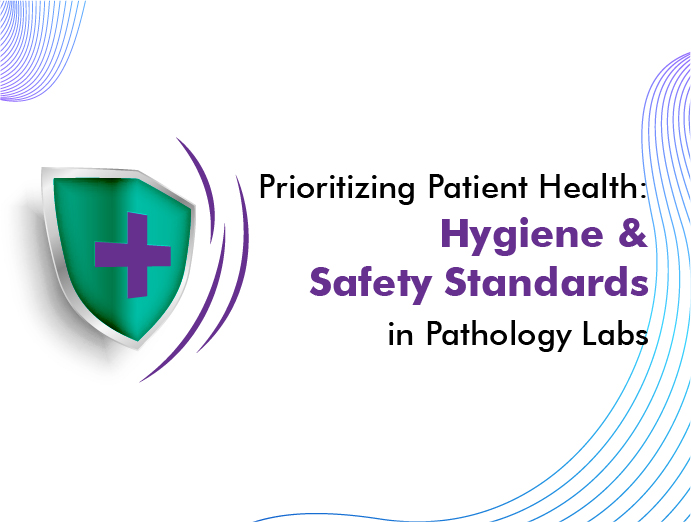Subscribe to our newsletter and receive exclusive offers every week
Thank you for Subscribe.
Adipur
Ahmedabad
Balotra
Bhavnagar
Bhuj
Botad
Dakor
Deesa
Gandhidham
Gandhinagar
Godhra
Halol
Himmatnagar
Indore
Jaipur
Jamnagar
Jodhpur
Kadi
Kalol
Khambhat
Kudasan
Lunavada
Mahuva
Mansa
Mehsana
Modasa
Nadiad
Navsari
Palanpur
Patan
Petlad
Rajkot
Ratlam
Sanand
Surat
Udaipur
Una
Vadodara
Accuris B+ve Basic Full Body Checkup
Accuris B+ve Platinum Full Body Health Checkup
Accuris B+ve Full Body Checkup for Senior Citizen (Female)
Accuris B+ve Queen Full Body Checkup


In a pathology lab, keeping things clean and safe is super important for both patients and the staff working there. Whether it's collecting samples or processing them, following strict hygiene rules is key. Not only does this make sure that test results are reliable, but it also helps keep everyone healthy.
So, it's crucial for everyone involved to stick to the guidelines to make sure that the lab runs smoothly and the results are as accurate as possible.
Importance of Hygiene and Safety in Pathology Labs:
The best pathology laboratories handle biological specimens that could contain infectious agents or dangerous substances. It's crucial to uphold stringent hygiene and safety standards to avert contamination, safeguard laboratory staff, and guarantee precise testing outcomes.
Preventing Cross-Contamination: Pathology labs handle various specimens from different patients. Proper hygiene practices, such as disinfection of surfaces and equipment between tests, minimize the risk of cross-contamination, which could lead to incorrect diagnoses or compromised results.
Protecting Lab Personnel: Pathology lab technicians and pathologists work with potentially harmful substances daily. Adhering to safety protocols, such as wearing personal protective equipment (PPE) like gloves, masks, and lab coats, shields staff from exposure to infectious agents or hazardous chemicals.
Maintaining Test Accuracy: Contamination or mishandling of samples can skew test results, leading to misdiagnoses or incorrect treatment plans. Hygienic practices ensure the integrity of specimens and the accuracy of diagnostic tests, thus enhancing patient care outcomes.
Standards and Protocols for Optimal Patient Safety:
To uphold hygiene and safety in pathology labs, adherence to standardized protocols is crucial. Here are key standards Pathology labs should follow:
Laboratory Design and Layout: The Pathology lab should be designed to facilitate efficient workflow and minimize contamination risks. Adequate space, designated areas for different procedures, and proper ventilation are essential.
Cleaning and Disinfection Practices: Regular cleaning and disinfection of all surfaces, equipment, and tools help eliminate pathogens and maintain a sterile environment. Using appropriate disinfectants and following manufacturer instructions is imperative.
Specimen Handling and Transportation: Proper labelling, storage, and transportation of specimens prevent mix-ups and ensure sample integrity. Following standardized procedures for specimen collection and handling minimizes the risk of errors.
Biomedical Waste Management: Safe disposal of biological waste, sharps, and hazardous materials is essential to prevent environmental contamination and protect public health.
Empowering Patients to Choose Safe Pathology Labs:
When selecting a pathology lab for diagnostic tests, patients should prioritize cleanliness and safety. Here are some tips to consider:
Accreditation and Certification: Look for Pathology labs accredited by reputable organizations, such as the National Accreditation Board for Testing and Calibration Laboratories (NABL), Clinical Laboratory Improvement Amendments (CLIA) or the College of American Pathologists (CAP). These accreditations ensure adherence to quality and safety standards.
Inquire About Hygiene Practices: Don't hesitate to ask about the Pathology lab's hygiene and safety protocols. Ensure they follow recommended guidelines for specimen handling, equipment maintenance, and infection control.
Inspect Facility Cleanliness: Take note of the Pathology lab's cleanliness and organization during your visit. A well-maintained facility reflects a commitment to hygiene and safety standards.
Check Staff Training and Expertise: Verify that Pathology lab personnel are adequately trained in safety procedures and handling techniques. Experienced staff members are more likely to prioritize patient safety.
In conclusion, maintaining hygiene and safety standards in pathology labs is essential for safeguarding patient health and ensuring accurate diagnostic outcomes. By adhering to established protocols and empowering patients to choose reputable pathology labs, we can collectively contribute to a safer and more reliable healthcare system.